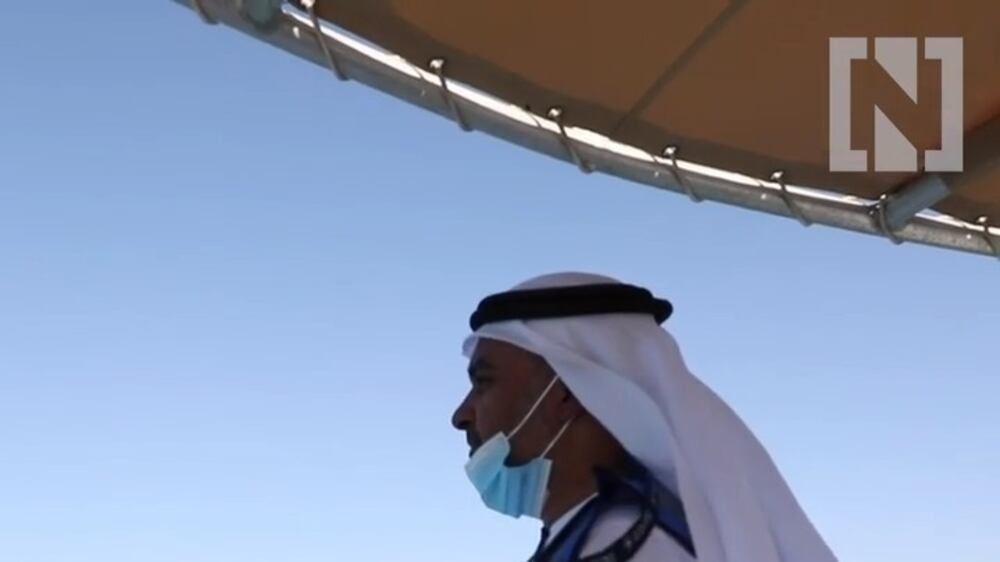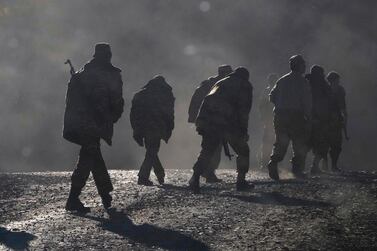Turkey and Iran became embroiled in a diplomatic spat at the weekend over the Turkish president’s recitation of a poem on a visit to Azerbaijan that Tehran regards as support for a secession of Azeri ethnic parts of Iran.
The row between the neighbours began when Turkish President Recep Tayyip Erdogan, who strongly backs Azerbaijan, read parts of the poem at a military parade in the Caucasian country’s capital of Baku on Thursday. The verses that Mr Erdogan read included lines about how a border tore apart ancient Azeri, or Azerbaijani, lands “by force”.
The next day, Iranian Foreign Minister Javad Zarif wrote on Twitter that "President Erdogan was not informed that what he ill-recited in Baku refers to the forcible separation of areas north of Aras from Iranian motherland".
Iranian authorities summoned the Turkish ambassador to complain about Mr Erdogan's "interventionist and unacceptable remarks".
On Saturday, Turkey’s communications director Fahrettin Altun said Iranians had distorted the meaning of the poem “to fuel senseless tensions”. He said the Iranian ambassador to Ankara was summoned to the Turkish foreign ministry late on Friday.
The Turkish and Iranian foreign ministers spoke by telephone later on Saturday. A Turkish foreign ministry official said Mevlut Cavusoglu told Mr Zarif that public statements coming out of Tehran aimed at the Turkish leader were baseless and unacceptable, when other channels of communication were available between the two governments.
Mr Cavusoglu assured Mr Zarif that Mr Erdogan fully respected Iran’s national sovereignty and territorial integrity, according to Iran’s state-run news agency, Irna.
The agency said the Turkish foreign minister explained that the president had not been aware of the sensitivities surrounding the lines he recited in Baku.
Mr Altun said the poem “passionately reflects the emotional experience of an aggrieved people due to Armenia’s occupation of Azerbaijani lands. It does not include any references to Iran”.
Iran’s three north-western provinces – West Azerbaijan, East Azerbaijan and Ardabil – have a predominantly ethnic Azeri population that speaks a Turkic language.
Mr Erdogan visited Baku to attend a parade to celebrate a recent ceasefire agreement that allowed Azerbaijan to reclaim control over broad areas of the breakaway region of Nagorno-Karabakh and surrounding lands in a conflict with Armenia.
“It must not be forgotten that Turkey stood in solidarity with the Iranian state and people, despite the risk of having to endure international pressures, at difficult times for Iran,” Mr Altun said.
Tehran and Ankara maintain mostly cordial relations, despite fighting on opposite sides of regional conflicts such as the Syrian war, and severe US trade sanctions against Iran.






